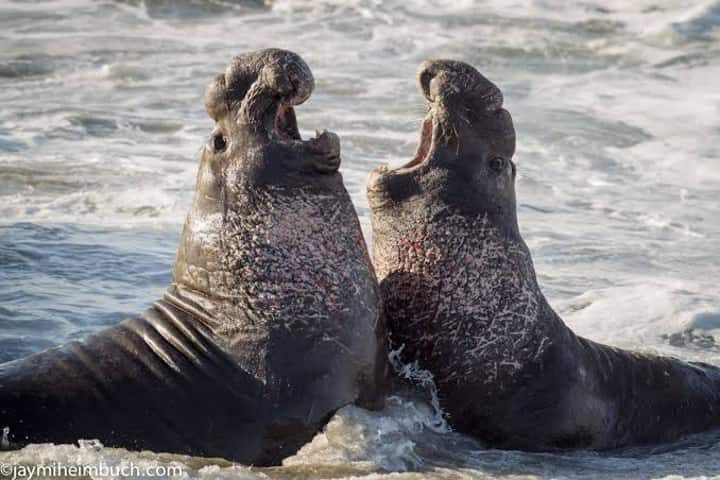Sleep is essential for a majority of beings but it may not be the case for some animals. Take for example the African elephants who need just two hours of nap to keep going.
Now a new study done by US researchers which was published in the journal Science stated that elephants have serious competition as it was found that Northern elephant seals can sustain themselves with just about 120 minutes of sleep.
Interestingly, the scientists discovered that the seals sleep far less at sea than they do at land, which is about 10 hours, thus making their sleeping pattern rather “unusual”.
The team of researchers monitored the brain activity of these animals as they swam for thousands of kilometres. They were found going down to the depth of 2,500 feet where they slept for two hours in what can be called as “nap-like sleeping dives”.
Sleeping in the deep enabled them to power-nap without being hunted by predators. On the ocean surface, these seals are attacked by sharks and killer whales, thus making them spend little time near the top. They take a short time breathing at the surface between dives according to University of California Santa Cruz.
In order to study these creatures off the coast of California, Jessica Kendall-Bar and her colleagues at UCSC created a non-invasive stick-on tag which enabled them to track and also at the same time observe the activity of their brain.
The scientists kept track of eight wild mammals when they went about hunting for food for a period of seven months, covering more than 9,977 kilometres. During this duration, tracking the heart rate, body position and brain activity of the creatures was recorded.
Talking to the media, Ritika Mukherji from the University of Oxford, who was part of the study said: “We developed a scientific ‘signature for sleep’ by studying their behaviour and physiology for many years.”
Their investigation brought to the fore that on reaching more than 984 feet, the seals went off to sleep and as per the researchers, they descended in what they apt described as “sleep spirals” for about 20 minutes at a time.
Describing the whole exercise, Dr. Kendall-Bar said: “They dive down, stop swimming and begin to glide. Then they transition to REM sleep, where they flip upside down and spin in a circle, falling like a leaf.”
During the REM or rapid eye movement – the deepest stage of sleep – these creatures stayed upside down. They seemed unaware of their slow descent.
Following 10 minutes of this sleep, the seals would wake up suddenly, making it back to the surface. Some of them even sank more than 1,000 feet, reaching the seafloor.
Through this study, the scientists hope to help in conservation of these marine mammals. Commenting on this Dr. Kendall-Bar said: “Learning more about where, when and how marine mammals sleep at sea can help scientists improve the management of their critical resting habitats.”




















